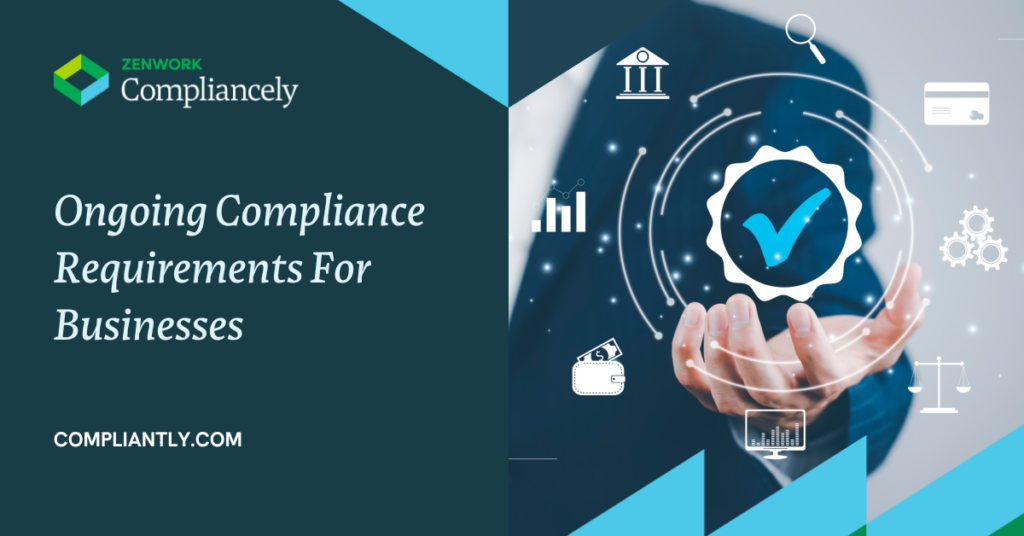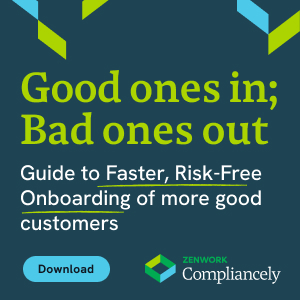Ongoing Compliance Requirements For Businesses

Did you know? There are approximately 32.5 million small businesses in the U.S alone? It’s true. Take a look at this report from 2021 published by the Small Business Administration (SBA). The report is indicative of the fact that many states are now dependent on the small business ecosystem to some extent.
Given that small businesses employ at least 46.8% of the private workforce in the U.S., states and federal laws have mandated small businesses to take several measures to curb the instances of money laundering, identity fraud, illegal business activities, and other non-compliant activities.
It’s no secret that identity fraud has increased by a whopping 45% in both 2020 and 2021. This puts immense pressure on businesses to incorporate several methodologies, such as identity verification, customer identification programs, and due diligence procedures, which ensure that businesses only associate with valid and credible profiles (entities and/or individuals).
Businesses are regulated by state laws, industry’s interests, and federal laws to comply with the regulations. So, if you’re a business in 2022, here’s everything you need to know to stay compliant.
So, let’s get started.
Access To Transactional Data
Every single transaction that a business is engaged with must be recorded and documented for compliance purposes. Keeping in mind the tax compliance, consequences of false tax information reporting, and the importance of complying with the IRS, businesses must consider investing in real-time accounting solutions and tax information verification programs, such as IRS TIN Matching in real-time from Compliancely.
Internal Compliance Protocols
Businesses are also exploring various ways to tighten internal compliance programs, such as KYC, customer identification protocols, due diligence, and more. These procedures will help businesses prevent onboarding profiles with invalid identities.
What’s more?
Internal compliance helps businesses craft security-inclusive policies that are stringent in the context of crises.
External Compliance Protocols
Anti Money Laundering directive is probably one of the most critical elements of compliance, where businesses are required to verify every incoming profile with AML protocols. AML compliance helps businesses prevent onboarding money launderers, terror financiers, sanctioned individuals/entities, groups and regimes that are engaged in illegal arms exports, and other unlawful activities.
AML compliance enables the small business ecosystem to protect itself from being misused by money launderers. The focus is mainly on financial services, insurance, and banking. However, businesses from other industries must also leverage the sanction-screening aspect of the AML compliance protocols to check if you’re engaging with foreign nationals or entities that have been sanctioned by the U.S. Treasury Department.
Security Compliance Protocols
Security compliance protocols can be customized per the security, business, and compliance objectives of an entity. However, standardizing a few procedures and creating a draft policy for review will help your business sustain and adapt to change should it occur.
Given the unprecedented climate of the global business ecosystem and the back-and-forth of sanctions from global powers, it is of prime importance to ensure that your business stays out of trouble. And the only way to ensure that is to screen your incoming profiles against a variety of sanction checks, such as blocked entities, specially designated nationals, foreign evaders list, OFAC watch list, FATCA, and more.
All these identity verification protocols are designed to help businesses verify the profiles comprehensively and arrive at an informed decision.
Compliancely enables businesses to verify the identities of customers, investors, partners, entities, contractors, employees, and other business associates through its identity checks and API solutions.
